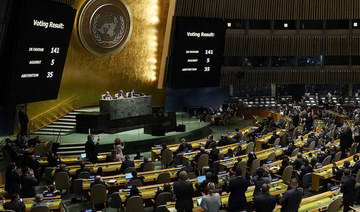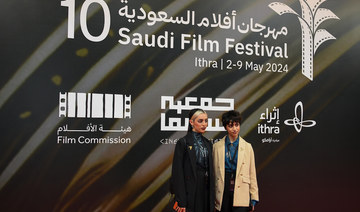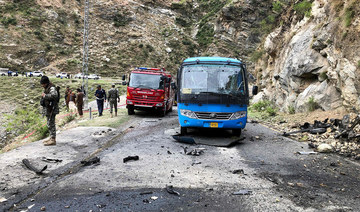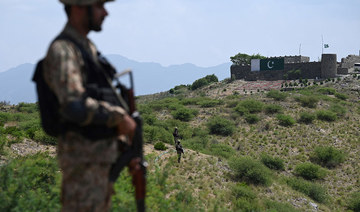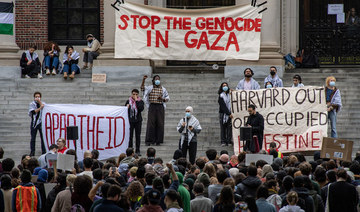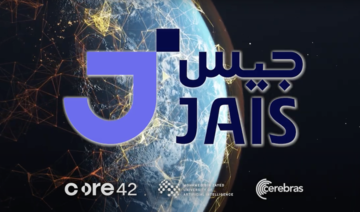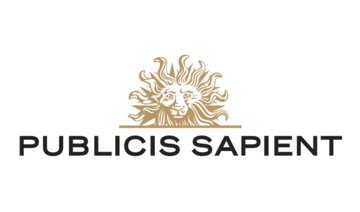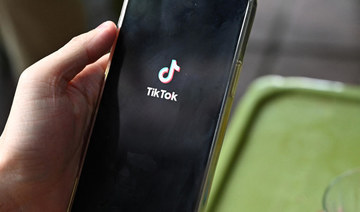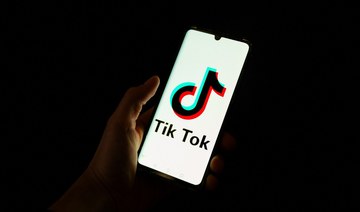BOSTON: Long before waging war on Ukraine, President Vladimir Putin was working to make Russia’s Internet a powerful tool of surveillance and social control akin to China’s so-called Great Firewall.
So when Western tech companies began cutting ties with Russia following its invasion, Russian investigative journalist Andrei Soldatov was alarmed. He’d spent years exposing Russian censorship and feared that well-intentioned efforts to aid Ukraine would instead help Putin isolate Russians from the free flow of information, aiding the Kremlin’s propaganda war.
“Look, guys the only space the Russians have to talk about Ukraine. and what is going on in Russia. is Facebook,” Soldatov, now exiled in London. wrote on Facebook in the war’s first week. “You cannot just, like, kill our access.”
Facebook didn’t, although the Kremlin soon picked up that baton, throttling both Facebook and Twitter so badly they are effectively unreachable on the Russian Internet. Putin has also blocked access to both Western media and independent news sites in the country, and a new law criminalizes spreading information that contradicts the government’s line. On Friday, the Kremlin said it would also restrict access to Instagram.
Yet the Kremlin’s latest censorship efforts have also revealed serious shortcomings in the government’s bigger plans to straightjacket the Internet. Any Russian with a modicum of tech smarts can circumvent Kremlin efforts to starve Russians of fact.
That puts providers of Internet bandwidth and associated services sympathetic to Ukraine’s plight in a tough spot. On one side, they face public pressure to punish the Russian state and economic reasons to limit services at a time when bills might well go unpaid. On the other, they’re wary of helping stifle a free flow of information that can counter Kremlin disinformation — for instance, the state’s claim that Russia’s military is heroically “liberating” Ukraine from fascists.
Amazon Web Services, a major provider of cloud computing services, continues to operate in Russia, although it says it’s not taking on any new customers. Both Cloudflare, which helps shield websites from denial-of-service attacks and malware, and Akamai, which boosts site performance by putting Internet content closer to its audience, also continue to serve their Russian customers, with exceptions including cutting off state-owned companies and firms under sanctions.
Microsoft, by contrast, hasn’t said whether it will halt its cloud services in the country, although it has suspended all new sales of products and services.
US-based Cogent, which provides a major “backbone” for Internet traffic, has cut direct connections inside Russia but left open the pipes through subsidiaries of Russian network providers at exchanges physically outside the country. Another major US backbone provider, Lumen, has done the same.
“We have no desire to cut off Russian individuals and think that an open Internet is critical to the world,” Cogent CEO Dave Schaeffer said in an interview. Direct connections to servers inside Russia, he said, could potentially “be used for offensive cyber efforts by the Russian government.”
Schaeffer said the decision didn’t reflect “financial considerations,” although he acknowledged that the ruble’s sharp drop, which makes imported goods and services more expensive in Russia, could make it difficult to collect customer payments. Meanwhile, he said, Cogent is providing Ukrainian customers free service during the conflict.
Schaeffer said these moves might impair Internet video in Russia but will leave plenty of bandwidth for smaller files.
Other major backbone providers in Europe and Asia also continue to serve Russia, a net importer of bandwidth, said Doug Madory, director of Internet analysis for the network management firm Kentik. He has noted no appreciable drop in connectivity from outside providers.
Cloudflare continues to operate four data centers in Russia even though Russian authorities ordered government websites to drop foreign-owned hosting providers as of Friday. In a March 7 blog post the company said it had determined “Russia needs more Internet access, not less.”
Under a 2019 “sovereign Internet” law, Russia is supposed to be able to operate its Internet independent of the rest of the world. In practice, that has brought Russia closer to the kind of intensive Internet monitoring and control practiced by China and Iran.
Its telecommunications oversight agency, Rozkomnadzor, successfully tested the system at scale a year ago when it throttled access to Twitter. It uses hundreds of so-called middleboxes — router-like devices run and remotely controlled by bureaucrats that can block individual websites and services — installed by law at all Internet providers inside Russia.
But the system, which also lets the FSB security service spy on Russian citizens, is a relative sieve compared to China’s Great Firewall. Andrew Sullivan, president of the nonprofit Internet Society, said there’s no evidence it has the ability to successfully disconnect Russia from the wider Internet.
“Walling off a country’s Internet is complicated, culturally, economically and technologically. And it becomes far more complicated with a country like Russia, whose Internet, unlike China’s, was not originally built out with government control in mind,” he said.
“When it comes to censorship, the only ones who can really do it are the Chinese,” said Serge Droze, a senior security engineer at Swiss-based Proton Technologies, which offers software for creating “virtual private networks,” or VPNs, a principal tool for circumventing state censorship.
ProtonVPN, which Droze says has been inventive in finding ways to circumvent Russian blocking, reports clocking ten times as many daily signups than before the war. VPN services tracked by researchers at Top10VPN.com found Facebook and Twitter downloads surging eight times higher than average. Its research found the Kremlin to have blocked more than 270 news and financial sites since the invasion, including BBC News and Voice of America’s Russian-language services.
Russia’s elites are believed to be big VPN users. No one expects them to disconnect.
Russian authorities are also having some success blocking the privacy-protecting Tor browser, which like VPNs lets users visit content at special ”.onion” sites on the so-called dark web, researchers say. Twitter just created a Tor site; other outlets such as The New York Times also have them.
The Kremlin has not, however, blocked the popular Telegram messaging app. It’s an important conduit for Ukrainian government ministries and also for Meduza, the Latvia-based independent Russian-language news organization whose website is blocked in Russia. Meduza has 1 million followers on Telegram.
One reason may be that Telegram is also a vital conduit for Kremlin propagandists, analysts say.
Additionally, Telegram does not feature default end-to-end encryption, which renders messages unreadable by the company and outsiders, as the popular US-based messaging apps Signal and WhatsApp do. WhatsApp is owned by Facebook’s parent, Meta. Telegram does offer users fully encrypted “private chats,” although users have to make sure to activate them.
After the invasion, Signal founder Moxie Marlinspike tweeted a reminder that sensitive communication on insecure apps can literally be a matter of life and death in war. A Signal spokesman would not share user numbers, but WhatsApp has an estimated 63 million users in Russia.
Being able to access outside websites and apps vital to staying informed depend, however, on foreign-based VPN services that Russians say they are having trouble paying for since Visa and Mastercard cut off their country.
War censorship exposes Putin’s leaky Internet controls
https://arab.news/6ats5
War censorship exposes Putin’s leaky Internet controls
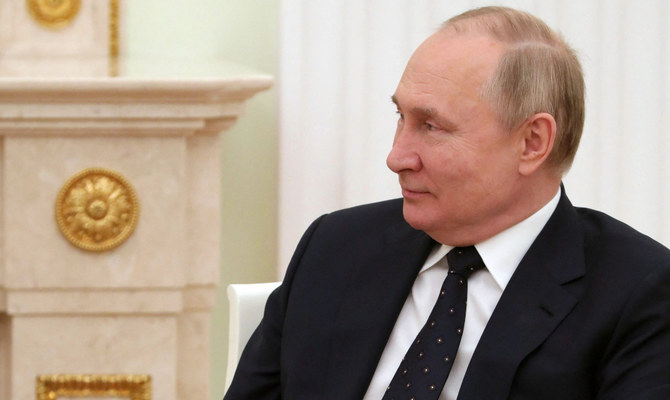
- Russians from the free flow of information, aiding the Kremlin’s propaganda war
Britain’s Arab-focused SAFAR Film Festival to feature stories from 15 countries

- Biggest festival to date will include 60 screenings and events across four London venues, plus screenings in 8 other UK venues
LONDON: This year’s SAFAR Film Festival will be held from June 18-30 in nine British cities, making it the largest and longest-running Arab cinema event in the UK, according to the Arab British Center.
Curated by long-time SAFAR and Arab British Center collaborator Rabih El-Khoury, the 2024 program will explore the themes of dreams, hopes, and realities through stories from 15 Arab countries.
The festival’s program features 60 screenings and events across four London venues, as well as cinemas in Birmingham, Cardiff, Glasgow, Hull, Liverpool, Manchester, Oxford and Plymouth.
El-Khoury said the festival will include Sudanese and Palestinian cinema, and promised audiences “themes spanning family dynamics, loss, love, migration, and the harsh truths of war and politics.”
He said: “Within these stories, and through challenging and captivating cinema, we aim to facilitate exchange, reflection and share strength in solidarity.”
In its ninth year, SAFAR is viewed as the leading platform for showcasing Arab cinema in the UK.
The program features new releases, classics, archive film, and family-friendly screenings.
Highlights include the documentary “Life is Beautiful” by Mohamed Jalaby, which examines European solidarity, and the rigidity of borders, both physical and bureaucratic, amid the Gaza war in 2014.
Other works include “Bye Bye Tiberias” by Lina Soualem, a poignant exploration of four generations of Palestinian women; “The Burdened” by Yemeni director Amr Gamal, which follows Isra’a and Ahmed who struggle to provide a sense of normalcy for their three young children; and “Inshallah a Boy” by Amjad Al Rasheed.
“The festival forms a key part of our work to further understanding of the Arab world in the UK,” said Nadia El-Sebai, executive director of the Arab British Center.
“This year we are honored to work once more with Rabih El-Khoury and our guest curators and partners across the UK to present our biggest festival to date.
“Despite the shadows cast by the difficult realities faced across the region, SAFAR invites us to come together and find solace, hopes and dreams, in the universal language of cinema,” she said.
Taliban warn journalists and experts against cooperating with Afghanistan International TV
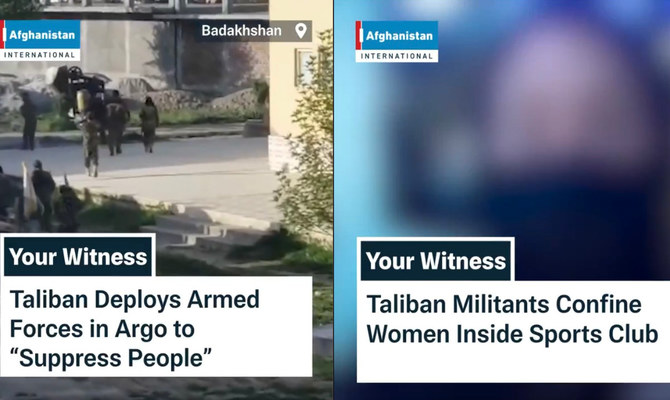
- Cooperating with the London-based media outfit is a crime, says Taliban information ministry
- During their previous rule in the late 1990s, the Taliban barred most TV, radio and newspapers
KABUL, Afghanistan: The Taliban on Thursday warned journalists and experts against working with Afghanistan International TV, saying they would be committing a crime if they cooperated with the station. It’s the first time they have told people not to cooperate with a specific outlet.
Afghanistan International TV, which is headquartered in London, is accessible through satellite, cable and social media.
A spokesman for the Taliban-controlled Ministry of Information and Culture alleged the station was committing professional violations and violating moral and legal boundaries.
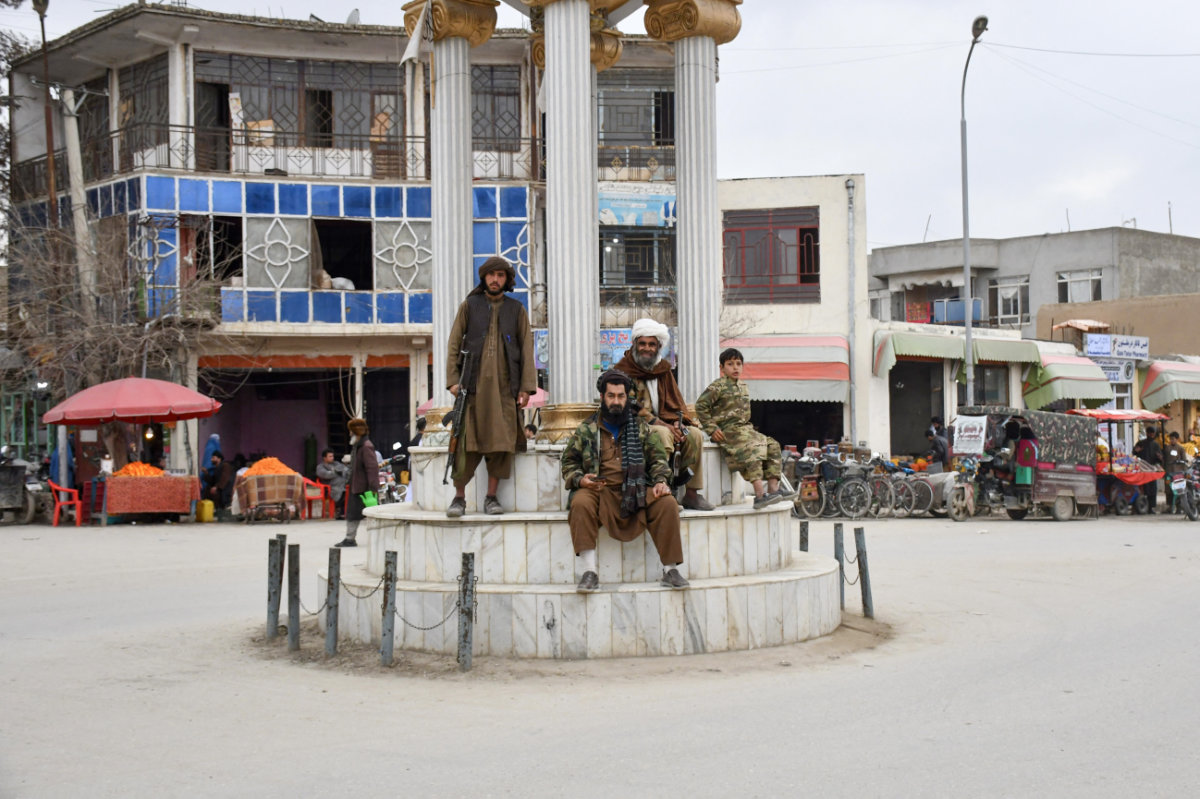
The Media Violations Commission wanted all journalists and experts in Afghanistan to cease their collaboration with the station, said ministry spokesman Habib Ghofran.
“At the commission’s meeting held yesterday (Wednesday), it was decided that participating in discussions and facilitating the broadcast of this media outlet in public places is prohibited,” added Ghofran.
The deputy minister for broadcasting Zia ul Haq Haqmal said people would be committing a crime if they cooperated with the station.
He cited 10 reasons to avoid working with Afghanistan International TV, including its alleged distortion or falsification of information and campaigning against the ruling system.
“If someone does not cooperate on the basis of all these 10 reasons, then it’s the court’s job to give a punishment,” said Haqmal.
The director of Afghanistan International TV, Harun Najafizada, said the commission’s decision would not affect the channel because it had no employees or freelancers in the country.
“We don’t have anyone on the ground and rely on the reporting of Afghan citizens,” said Najafizada. “That’s more challenging, but we have tough verification. It’s a threat to free media, to other media, and to put pressure on us to forgo our professional standards. It’s not going to work.”
Afghanistan fares abysmally in terms of press freedom. The latest index from Reporters without Borders ranked the country 178 out of 180. It ranked 152 last year.
The organization said three radio reporters were arrested in April for broadcasting music and receiving calls from female listeners during shows. Local authorities weren’t available to confirm the arrests.
Also last month, the Taliban suspended two TV stations for failing to “consider national and Islamic values.”
The director for one of the suspended stations, Barya TV, rejected the Taliban’s allegations. The station is still off air.
Latif Sadiq said the station wasn’t informed about the suspension. “The reports that they repeatedly warned (Barya) are absolute lies,” Sadiq said Thursday. “They have decided on their own that (Barya) television is off, broadcasting is off, and they said the case will go to court.”
Many journalists lost their jobs after the Taliban takeover in 2021, with media outlets closing over a lack of funds or because their staff left the country. Women journalists face additional hardships because of work bans and travel restrictions.
During their previous rule in the late 1990s, the Taliban barred most television, radio and newspapers.
170 speakers and 1,000+ delegates gather for Gulf Creatives Conference at Harvard University

- The 3-day event aims to be ‘the premier gathering for creative minds from the Gulf in the US,’ and to ‘empower, inspire and support Gulf creatives to drive positive change’
- It is organized by The Diwan, a student-run organization intended to provide a platform for discussion of topics relevant to the Arab world, and particularly the Gulf region
BOSTON: A Gulf Creatives Conference will begin on May 10 at Harvard University, bringing together more than 170 speakers and over 1,000 delegates from sectors such as arts and culture, business and innovation, nonprofits and public policy, healthcare, and science and technology.
The three-day event is organized by The Diwan, a student-run organization at the university in Cambridge, Massachusetts.
Abdulla Almarzooqi, chairperson of the organization’s UAE Committee, and a graduate student at Harvard, told Arab News the aim is for the conference to “become the premier gathering for creative minds from the Gulf in the US,” and to “empower, inspire and support Gulf creatives to drive positive change.”
The Diwan was founded in the fall of 2023 as a platform for experts, academics, policymakers and students to discuss topics relevant to the Arab world, and particularly the Gulf region, including entrepreneurship, the empowerment of women and young people, and education, he added.
It organized a conference in November last year titled “Shaping the Arab World: Navigating Opportunities and Challenges” that addressed the geopolitics of the region and the ongoing war in Gaza. Almarzooqi said it was the largest gathering of Arab ambassadors in the history of Harvard University.
Now the organization is hosting the Gulf Creatives Conference, at a time when emotions are running high on many college campuses in the US amid protests against the conflict in Gaza by students and, in some cases, faculty members. However, the Harvard event will focus on “creativity and showcasing the region’s most promising talents,” said Almarzooqi.
“Amid the rising tensions on US college campuses, we believe firmly in the power of creativity and the arts in healing wounds and bridging divides,” he added.
The conference will include 24 discussion sessions and five workshops, covering topics such as public policy, innovation strategies, and the future of healthcare, in which all delegates are encouraged to actively participate, organizers said.
The speakers include prominent figures such as: Dr. Mahmoud Al-Yamany, sector head of health and well-being at the NEOM urban development megaproject in Saudi Arabia; Majid Ibrahim Al-Fayyadh, CEO of the King Faisal Specialist Hospital and Research Center in Riyadh; and Deemah Al-Yahya, secretary-general of the Digital Cooperation Organization.
The Gulf Creatives Conference will take place from May 10 to 12 at Harvard University.
‘Vision 2030 has set a blueprint for the future of the Kingdom,’ says TBWA\RAAD’s Saudi MD
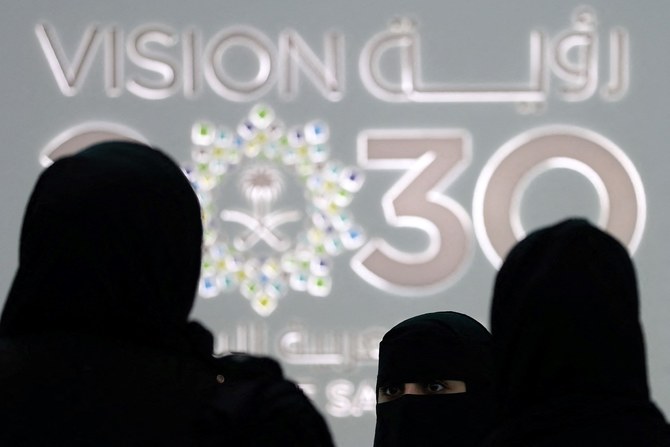
- Ad agency’s new Riyadh office to serve as a central hub for local, regional, global brands looking to succeed in Saudi Arabia
DUBAI: Advertising agency TBWA\RAAD appointed Dan Leach as its managing director for operations in Saudi Arabia following the establishment of a new office in Riyadh earlier this year. It is now bidding to cement its presence in the Kingdom.
The agency has been working with clients such as KFC, NEOM, and Nissan in the Kingdom for 20 years and now, with its new office, it aims to strengthen and serve as “a central hub for local, regional, and global brands looking to make their mark in the country,” Leach said.
He told Arab News: “The Middle East is renowned for its leadership and bold ambition, and Saudi Arabia exemplifies these qualities. But what I believe makes the Kingdom stand out further is its single-minded approach to disrupting the status quo … of everything.
“From building the largest vertical city in the world in NEOM; redefining luxury in the Red Sea; bringing the world’s sporting events to the country and more, there is no blueprint for what Saudi Arabia is doing.”
 Staffing the new office is a “critical aspect of our expansion strategy” and the company is currently focusing on making “strategic hires,” including a new local senior management team, with the objective of ensuring “we have the right talent in place to meet the dynamic needs of our clients, driving our success not only in Riyadh, but across Saudi as a whole,” Leach said.
Staffing the new office is a “critical aspect of our expansion strategy” and the company is currently focusing on making “strategic hires,” including a new local senior management team, with the objective of ensuring “we have the right talent in place to meet the dynamic needs of our clients, driving our success not only in Riyadh, but across Saudi as a whole,” Leach said.
Saudi’s Vision 2030 has accelerated the growth of multiple industries, as well as technology and innovation, presenting new opportunities for advertising agencies like TBWA\RAAD.
Leach added: “Saudi’s story now belongs on the world stage, which implies that storytelling must be characterized by award-winning strategic and creative thinking.”
The country’s ambition to be at the forefront of technology such as artificial intelligence aligns with the agency’s vision.
Leach said: “We need to keep pace with the ambition of the Kingdom in this area and ensure our clients are benefiting from transformative innovation that can reach new customers.”
This ambition is evident in the growth of the creative and media industry, which is already seeing an “influx of bold award-winning campaigns fueling the emergence of incredible, young creative talent that will see the sector thrive for years to come,” he added.
Contrary to the common belief that Saudi lacks creative talent, Leach’s experience has been quite the opposite.
He said: “I have had a number of discussions with young creatives, and there is a genuine passion and hunger from this next generation to be at the forefront of the industry.”
He believes it is important for the industry to foster this talent in order to bolster the growth of the industry. The agency is therefore working with local universities to implement a graduate and internship program to help identify and support creative talent in the Kingdom.
Saudi Arabia’s growth and vision have attracted global attention and investment, with brands stepping up their game in the Kingdom. Leach, however, cautions brands against entering the market with a copy-and-paste approach.
He said: “We’re seeing a lot of brands come into the Kingdom with the approach of simply localizing copy and thinking that is enough to win; it’s not.”
He explained that Saudi consumers are savvy and can distinguish between brands that are being opportunistic and those truly embracing local culture.
Brands can also find success in aligning their story with that of the Kingdom and its leadership, Leach said.
He added: “Brands are entering a country that has near unlimited ambition — they need to match that energy.”
They do so by embracing new technology and aiming big, he said, and this also means brands should experiment and do things differently.
He said: “The Kingdom is an incredibly exciting place where there is room and opportunity to challenge the status quo.”
TBWA\RAAD, for example, has made significant advances in adopting AI — such as partnering with Core42 last year to harness the potential of Arabic large-language model Jais in the creative sector and launching its own ChatGPT-based tool Co-Pirate — to support clients.
The agency is also working on bringing new products to the Kingdom, including dedicated social media programs, retail initiatives and internal communications platforms.
Leach said: “Our ambition is not to be the largest agency in the Kingdom but creatively the most exciting, and Saudi Arabia presents the perfect canvas upon which we can deliver that ambition.”
TikTok to label AI-generated images, video from OpenAI and elsewhere
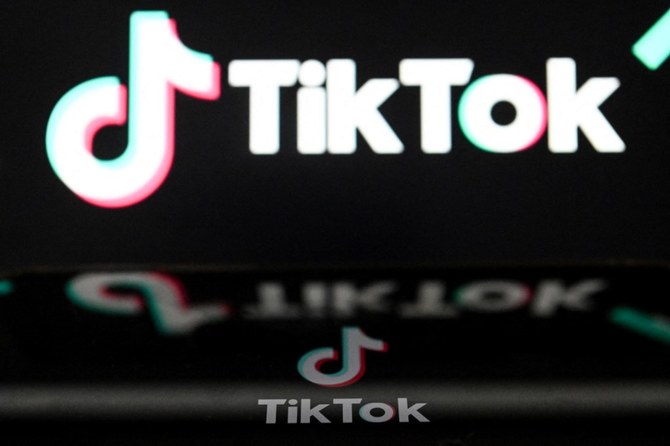
- Content Credentials technology denotes how images were created and edited
- For the system to work, both AI maker and platform must adhere to use the industry standard
LONDON: TikTok said on Thursday it would start using a technology aimed at helping it label images and video generated by artificial intelligence and uploaded to the video sharing service.
TikTok said it would adopt “Content Credentials,” a digital watermark that denotes how images were created and edited. The Content Credential technology was spearheaded by Adobe but is open for other companies to use and already has been adopted by companies such as ChatGPT creator OpenAI.
Researchers have expressed concerned that AI-generated content could be used as misinformation in an attempt to interfere with US elections this fall. TikTok was already among a group of 20 tech companies that earlier this year signed an accord pledging to fight it.
YouTube, owned by Alphabet’s Google, as well as Meta Platforms, which owns Instagram and Facebook, have also said they plan to use Content Credentials.
For the system to work, both the maker of the generative AI tool used to make content and the platform used to distribute the contents must both agree to use the industry standard.
If a person uses OpenAI’s Dall-E tool to generate an image, for example, OpenAI attaches a watermark to the resulting image. If that marked image is then uploaded to TikTok, it will be automatically labeled as AI-generated.
TikTok, which is owned by China’s ByteDance, has 170 million users in the United States, which recently passed a law requiring ByteDance to divest TikTok or face a ban. TikTok and ByteDance have sued to block the law, arguing it violates the First Amendment.
TikTok already labels AI-generated content made with tools inside the app but the latest move would apply a label to content generated outside of the service.
“We also have policies that prohibit realistic AI that is not labeled, so if realistic AI (generated contents) appears on the platform, then we will remove it as violating our community guidelines,” Adam Presser, head of operations and trust and safety at TikTok, said in an interview.




